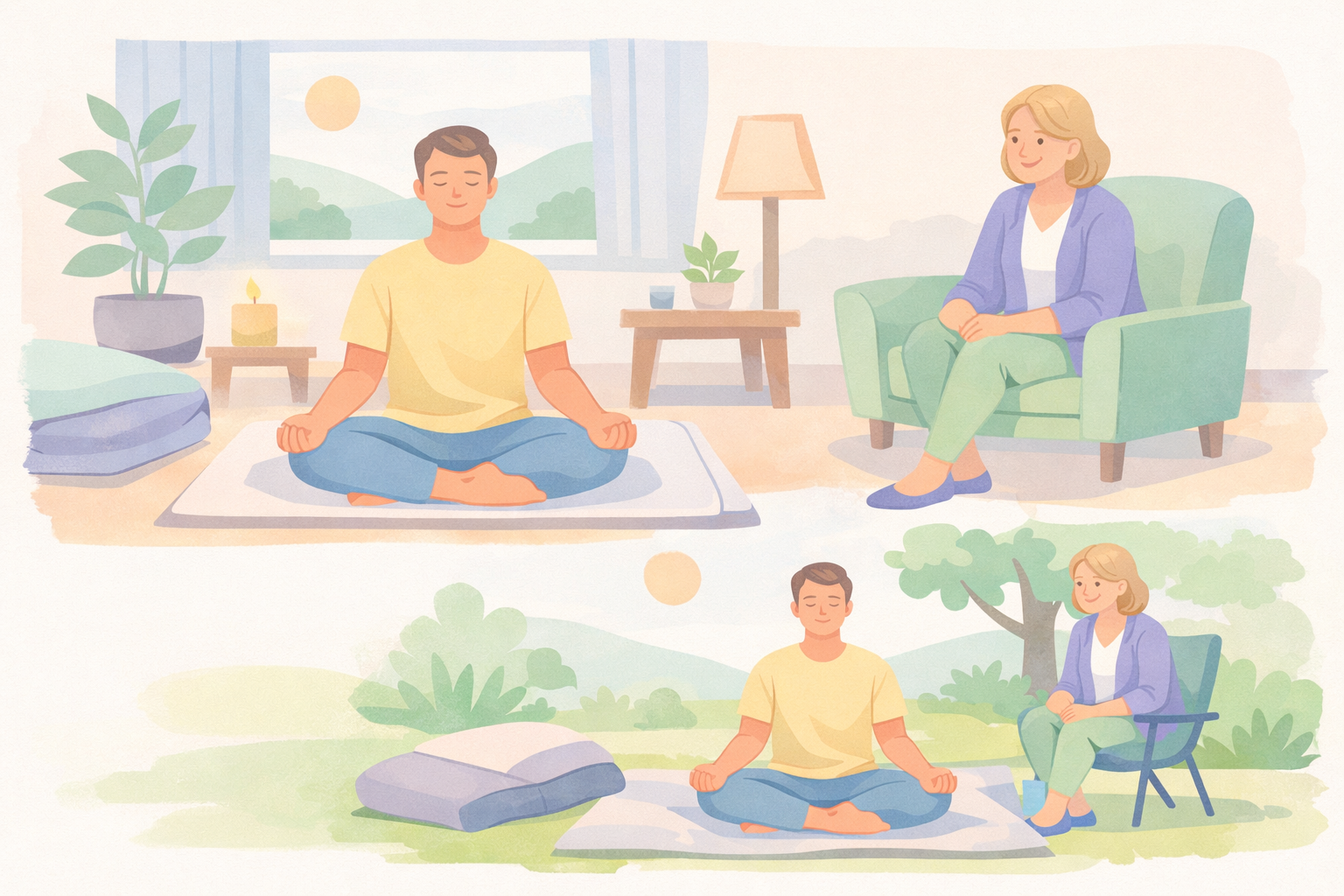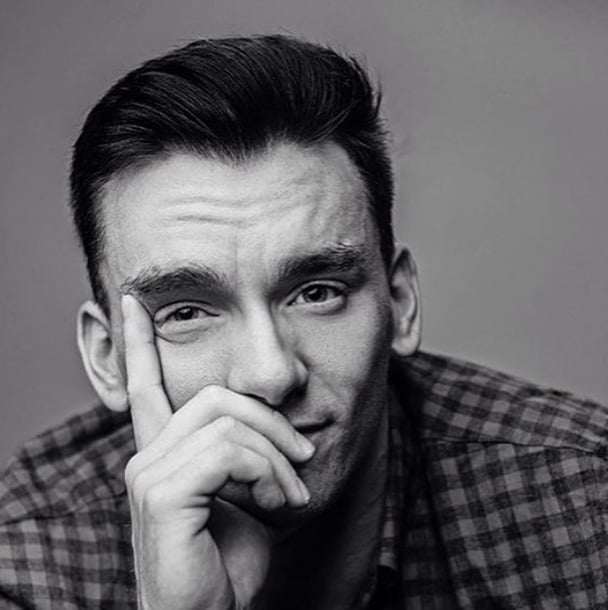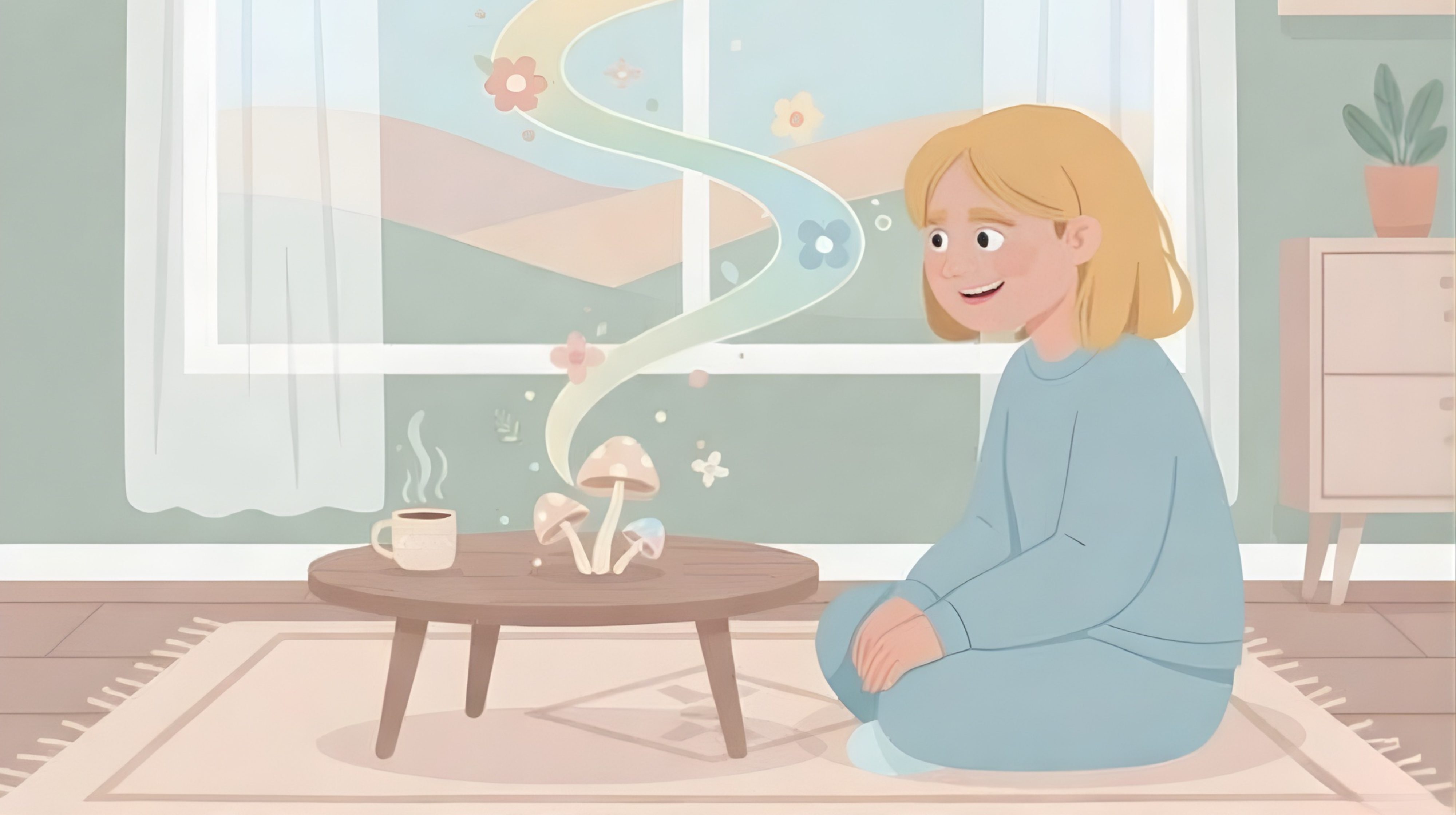Psilocybin, which you probably know as magic mushrooms, is growing more popular by the year. In 2024, authors Yang et al. (1) published a report in which they remarked on the “growing interest” in microdosing psychedelics, partly due to expanded legality, and partly because of psilocybin’s potency as a neuropsychiatric treatment.
But as magic mushroom microdosing becomes more commonplace, it’s important to know how psilocybin, used recreationally or therapeutically, may interact with other substances—namely caffeine, the world’s most popular psychoactive drug. (2)
Consider this article your cheat sheet for understanding psilocybin and caffeine usage. We’re breaking down how these two drugs interact, what you can expect if you take them together, and when to wean off or omit caffeine altogether to get the best results on your trip.
Understanding Psilocybin and Caffeine
Before we dive deeper into how psilocybin and caffeine dance with each other, let’s run through how these two drugs individually affect your brain and body.
How Psilocybin Works in the Brain
Psilocybin is a naturally occurring tryptamine, a substance with the potential to impact brain activity significantly. It’s found in over 300 species of mushrooms, and when ingested, can produce strong emotional and spiritual experiences.
Chemically, psilocybin enters the brain through many of the same pathways as serotonin, a hormone that regulates your mood and stress response. Those suffering from ailments like depression or post-traumatic stress disorder tend to have low levels of serotonin or struggle to regulate it properly. Psilocybin helps stimulate the release of the hormone, which is why folks report feelings of euphoria on mushrooms.

Psilocybin also encourages more communication between different areas of your brain. Rewiring your brain’s phone lines, so to speak, helps people on mushrooms think differently and find new perspectives on their lives.
As authors Smausz et al. put it, psilocybin’s therapeutic potential is rooted in its ability to “open a therapeutic window to facilitate the emergence of novel insights, potentially leading to emotional release.” (3)
How Caffeine Affects the Nervous System
While psilocybin’s effects are almost entirely neurological, caffeine augments your central nervous system by obstructing the production of adenosine, a chemical that promotes relaxation, in the brain.
When ingested—commonly through beverages such as coffee—caffeine promotes alertness, boosts energy, and elevates physical performance.
Caffeine is also markedly safe given its efficacy as an energy booster, as long as you don’t take too much. The Mayo Clinic recommends a daily ceiling of around 400 milligrams (mg), for instance.
Why People Mix Them
Psilocybin and caffeine facilitate opposing goals. The former is meant for deep relaxation and therapeutic experiences, while the latter is taken to focus, work, or exercise. That said, it’s not entirely uncommon to consume them together.
Most of the joint consumption of psilocybin and caffeine is incidental; caffeine can remain active in your system for up to 9.5 hours after ingestion (4), which means you may find yourself settling into a mushroom trip while residual caffeine lingers in your body.
Still, some folks will sometimes consume caffeine in the hopes of altering their experience on mushrooms. Yet, despite the potential for adverse reactions from mixing psychoactive drugs, people will either do so intentionally or purchase products containing both. (5)
While there’s no direct conflict between psilocybin and caffeine, we do need to acknowledge how they interact with each other.
The Science of Interaction
The experiences provided by mushrooms can’t truly be distilled in a science lab. That said, we’ll have to get clinical to grasp how psilocybin and caffeine interact and the potential risks associated with ingesting both.
Serotonin, Dopamine, and Adenosine: Overlapping Pathways
Drugs, psilocybin and caffeine included, exert influence on you via biological pathways—a series of specific chemical actions on certain hormones. Serotonin, dopamine, and adenosine, which are all influenced by either mushrooms or caffeine, cross paths in certain areas of your brain: the prefrontal cortex, basal ganglia, and hippocampus

This means they have the potential to augment or inhibit each other, sort of like how cars on a crowded highway must adjust and accommodate other vehicles.
What Research Says (and What It Doesn’t Yet Know)
Here’s the sticky part: There is limited data directly looking at how psilocybin and caffeine interact. In 2018, Nguyen et al. (6) observed one noteworthy contradictory effect:
- Caffeine enhances your ability to visually discern between different objects.
- More recent research by Swanson & colleagues (7) in 2024 then identified that psilocybin dampens visual contrast.
In plain English, the limited body of research available suggests that mushrooms can create spatial distortion, while caffeine sharpens perception. But what that means practically isn’t clear.
Of course, this is just the tip of the iceberg regarding psilocybin’s potency and utility. Still, we are beginning to get some empirical support for the idea that mushrooms and caffeine have very different effects on how you experience the world around you.
Commonly Reported Effects When Combined
We do have a few studies discussing the combination of psilocybin and caffeine. Vorobyeva & colleagues in 2022 remarked that combining the two “may increase undertones of stimulation, changing the course of the experience as a whole.” (8)
Anecdotally and based off what we know about the nature of caffeine, some common outcomes when combined with mushrooms may include:
- Feeling more awake or alert during your trip
- Reduced drowsiness, which tends to accompany mushroom usage
- More vigor for physical activity while tripping
All of which makes caffeine sound like a compelling option to stack with psilocybin. However, we’re also aware of several downsides.
Potential Benefits & Drawbacks
Rarely, if ever, is combining two drugs a universally positive experience. This holds true especially for psilocybin and caffeine. Let’s recap some benefits and then examine potential drawbacks so you can make an informed decision.
How Caffeine May Enhance the Experience
- If you want to feel more energy or vigor during your trip
- If you need to focus on something specific while taking mushrooms
- If your trips generally feel foggy or vague, and you’re looking for a “sharper” experience
How Caffeine Can Increase Risk or Discomfort
- Caffeine can increase anxiety, which may cause you to panic or catastrophize while tripping
- It’s easy to overdo it on caffeine, which can tip you into overstimulation during your trip
- Caffeine is a diuretic; if you forget to drink water while tripping, you may put yourself at risk of dehydration.
Tips for Combining Psilocybin and Caffeine
Time to get practical. If you’re considering consuming caffeine shortly before or during your psilocybin trip, it’s essential to know how to both mitigate risk and maximize potential benefits.
Timing: Before, During, or After the Trip
Managing anxiety and other associated emotions is crucial while using psilocybin. To that end, you should avoid consuming caffeine shortly before or during your trip unless you have extensive experience with mushrooms.
Other things to consider:
- Avoid caffeine if you’re taking psilocybin in the afternoon or evening, since it can interfere with your sleep.
- Conversely, you may have a better experience combining caffeine and psilocybin if you take them in the morning, after a small meal.
- Caffeine during your come-down can be useful for finding productivity, especially if you’re into journaling or have a specific goal in mind for the mental clarity you achieve during your trip.
Ideal Environment and Mindset
If you’re a jittery, paranoid, or socially anxious person, adding caffeine to your psilocybin trip won’t do you any favors—especially if you think you’ll be in a crowded public space during your come-up or while you’re peaking.

Caffeine or not, beginners and regular users alike should begin their psilocybin journey in a serene, familiar environment: one’s living room, back yard, or similar, and under supervision from someone trustworthy.
Recognizing Signs of Overstimulation or Anxiety
You’re liable to experience a wide array of emotions during your psilocybin trip. Identifying the onset of negative feelings is key. Be mindful of the following signals to keep tabs on creeping anxiety or overstimulation:
- If your thoughts feel accelerated, or you can’t fully digest one before being bombarded by another.
- If you’re feeling paranoid or apprehensive about the people you’re with or the environment you’re in.
- If a wave of dread washes in, saturating you with a vague sense of something being terribly wrong.
On the physical side, look out for an elevated heart rate; muscular jerks or tremors; inexplicable sweating; chills; a dry or chalky feeling in your mouth.
Hydration and Nutrition Support
If you’re consuming caffeine before or during your trip, hydration becomes doubly important, as caffeine is a mild diuretic. Take small sips of water throughout your trip (this is a great thing for your sitter to remind you about), and make sure you have something tolerable in your stomach before you start.
How To Manage a Bad Trip
Navigating a psychedelic trip gone wrong is a bit like escaping quicksand: Panicking only accelerates the problem. Slowing your mind and relaxing your body are paramount if you feel yourself veering into a mental or emotional trap.
At Beckley Retreats, our veteran facilitators are trained to provide a helping hand if you find yourself veering off course. Lead facilitator Kosu Boudreau specializes in trauma-informed facilitation due to her extensive educational background working with those who seek psychedelic breakthroughs to escape trauma.

Rooting yourself in physical sensation can help ground you during a bad trip. Lead facilitator Lucyne Pearson specializes in auditory techniques like sound healing and breathwork—reminding yourself of what you see, hear, and can touch in the space around you is crucial to avoid spiraling.
Retreat and Clinical Protocols (Why Most Avoid Caffeine)
Beckley Retreats strongly recommends limiting caffeine in the days or weeks before your retreat, and generally will not be available once you’ve arrived for your journey. The intention here is to empty your body of foreign substances that may influence your experience.
How to Taper or Eliminate Caffeine Safely Before a Journey
If you’ve booked your ticket on a psilocybin journey but enjoy a cup of coffee every day (or three), you should probably consider paring down your caffeine intake in advance.
Quitting cold turkey works for some people, but a more reliable method is to taper your intake to avoid withdrawal symptoms. It’s simple:
- Make a rough assessment of your total daily caffeine intake. For reference, an 8-ounce cup of coffee contains about 100mg.
- If you’re consuming 300mg or more per day, cut back gradually to the tune of 50mg per day.
- If you’re consuming 200mg or less, you can probably get away with reducing 100mg every day or every other day.
- If you’re a one-and-done consumer of coffee or energy drinks, you can probably get away with cutting it out all at once.
Give yourself a few days to adjust to your reduced (or eliminated) caffeine intake level before beginning psilocybin.
Integration and Aftercare
Remember: caffeine can function as a proverbial nitrous injection of energy into your trip, enhancing some of the experiences you have while on psilocybin. But the higher you climb, the more important it is to come down safely.
Managing Post-Experience Fatigue or Jitters
After you peak and are coming down from your trip, you should prioritize finding peaceful time in a low-stimulation environment, even if that’s the vibe you cultivated already. Your brain and nervous system need time to unpack everything, so don’t go rushing out the door even if you feel you’re “back to normal.”
If you’re experiencing fatigue or jitters, you might want to eat something inoffensive to your stomach, making sure it doesn’t require extensive prep in the kitchen or too much dexterity to consume.
Reflecting on Physiological and Emotional Responses
The apex of your trip often feels the most productive, but the real value comes from what you glean through pensive and patient reflection. More than anything, remember to go easy on yourself, especially if you’re a beginner.
You can’t always control the direction of your trip, or the emotional or spiritual state you descend from when you’re coming down. Reflection (via a journal), and, if you’re with someone you trust, externalization are powerful tools for settling your mind.
Frequently Asked Questions
Yes, you can consume coffee before psilocybin; the two drugs are not directly contraindicated. However, caffeine and psilocybin tend to create opposing effects in your body, and may not mix well. Proceed with caution, especially regarding your caffeine intake.
Yes, caffeine can amplify certain emotions you’re likely to experience while on a mushroom trip. If your come-up creates feelings of euphoria or ambition, caffeine can push things a little bit further. Conversely, caffeine can help offset some fatigue or drowsiness as well, but mixing them does have some common side effects.
Yes. Anxiety, jitters, and paranoia are commonly associated with strong doses of caffeine, even if you aren’t on psilocybin at the time. Magic mushrooms can sensitize you to all sorts of emotion, worsening your anxiety in the process.
Generally speaking, you’ll want to abstain from caffeine while microdosing mushrooms, particularly as a beginner. If you’re an experienced tripper, you can gently broach the boundaries of mixing the two, but doing so isn’t broadly advisable.
You’ll want to gradually reduce the amount of caffeine you consume before embarking on a psychedelic retreat, since you likely won’t have access to many stimulants while you’re there.
If you consume high amounts of caffeine per day (400mg+), give yourself a longer off-ramp of up to two weeks, cutting back conservatively. If you only drink a cup or two of coffee once in a while, you should be able to cut it cold turkey.
Sources
- Yang KH, Satybaldiyeva N, Allen MR, Ayers JW, Leas EC. State Cannabis and Psychedelic Legislation and Microdosing Interest in the US. JAMA Health Forum. 2024;5(6):e241653. doi:10.1001/jamahealthforum.2024.1653
- Temple JL, Bernard C, Lipshultz SE, Czachor JD, Westphal JA, Mestre MA. The Safety of Ingested Caffeine: A Comprehensive Review. Front Psychiatry. 2017 May 26;8:80. doi: 10.3389/fpsyt.2017.00080. PMID: 28603504; PMCID: PMC5445139.
- Smausz R, Neill J, Gigg J. Neural mechanisms underlying psilocybin’s therapeutic potential – the need for preclinical in vivo electrophysiology. J Psychopharmacol. 2022 Jul;36(7):781-793. doi: 10.1177/02698811221092508. Epub 2022 May 30. PMID: 35638159; PMCID: PMC9247433.
- Institute of Medicine (US) Committee on Military Nutrition Research. Caffeine for the Sustainment of Mental Task Performance: Formulations for Military Operations. Washington (DC): National Academies Press (US); 2001. 2, Pharmacology of Caffeine.
- Vanattou-Saïfoudine N, McNamara R, Harkin A. Caffeine provokes adverse interactions with 3,4-methylenedioxymethamphetamine (MDMA, ‘ecstasy’) and related psychostimulants: mechanisms and mediators. Br J Pharmacol. 2012 Nov;167(5):946-59. doi: 10.1111/j.1476-5381.2012.02065.x. PMID: 22671762; PMCID: PMC3492978.
- Nguyen BN, Hew SA, Ly J, Shin HY, Wong JC, Yeung E, McKendrick AM. Acute caffeine ingestion affects surround suppression of perceived contrast. J Psychopharmacol. 2018 Jan;32(1):81-88. doi: 10.1177/0269881117725684. Epub 2017 Sep 7. PMID: 28879800.
- Swanson LR, Jungers S, Varghese R, Cullen KR, Evans MD, Nielson JL, Schallmo MP. Enhanced visual contrast suppression during peak psilocybin effects: Psychophysical results from a pilot randomized controlled trial. J Vis. 2024 Nov 4;24(12):5. doi: 10.1167/jov.24.12.5. PMID: 39499526; PMCID: PMC11540033.
- Vorobyeva N and Kozlova AA (2022) Three Naturally-Occurring Psychedelics and Their Significance in the Treatment of Mental Health Disorders. Front. Pharmacol. 13:927984. doi: 10.3389/fphar.2022.927984

Jake Dickson
Jake holds a B.S. in Exercise Science from UNC Wilmington and began his career as a personal trainer and weightlifting coach. In recent years, he’s moved behind the page as a writer and editor, contributing hundreds of articles and being featured as a subject matter expert. Today, Jake’s goal remains the same: to empower people to change their lives by bringing heady scientific topics down to ground level.
-2-1.png)
